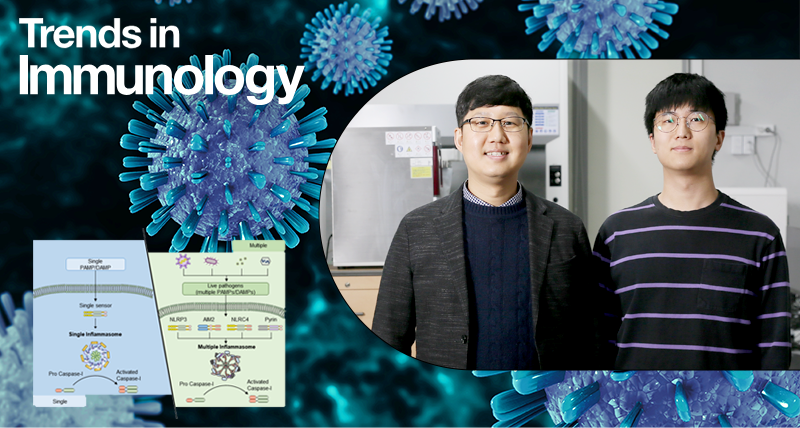In a groundbreaking study led by Professor SangJoon Lee from the Department of Biological Science at UNIST, the traditional understanding of pathogen-associated molecular patterns (PAMP) and damage-associated molecular patterns (DAMP) in the context of innate immunity has been re-evaluated. The team’s latest findings have unveiled the significance of multi-sensor inflammatory control complexes, offering a fresh perspective on how inflammatory responses are orchestrated in the presence of infectious diseases.
The research team focused on elucidating the activation process of the multi-sensor inflammatory control complex, contrasting it with the extensively studied single-sensor complex. They underscored the diverse array of pathogen-related molecules that trigger immune responses, emphasizing the necessity to consider multiple innate immune sensors in infectious disease research.
Published in the March 2024 issue of Trends in Immunology, the research team highlighted the distinct activation mechanisms of the multi-sensor inflammation control complex in comparison to the conventional single-sensor model. By delineating the roles of individual sensors and their collective impact on inflammatory pathways, the study broadened our comprehension of diseases associated with these complexes, including autoimmune disorders.
Lead author Gyeongju Yu commented, “This study provided an opportunity to reassess the intricate interplay of sensors and effectors involved in inflammatory control complex activation, paving the way for further exploration in this field.” The team’s comprehensive analysis of multi-sensor-based complexes shed light on the critical role of external pathogens in modulating inflammatory responses and controlling cell death processes such as apoptosis, necroptosis, and pyroptosis.
Professor Lee highlighted the implications of the study for infectious disease research, particularly in managing multidemic scenarios like concurrent outbreaks of COVID-19 and influenza, stating, “The results of this study are expected to be an important starting point for the study of combined infectious disease (multidemic) as well as COVID-19 and influenza flu epidemics.”
The collaboration with Director Young Ki Choi from the Center for Study of Emerging and Re-emerging Viruses at the Korea Virus Research Institute under the Institute for Basic Science (IBS) emphasizes the significance of this research in advancing our understanding of immune responses to diverse pathogens. The study received support from the Ministry of Science and ICT (MSIT), the Korea Health Industry Development Institute (KHIDI), the Institute for Basic Science (IBS), and the Circle Foundation.
Journal Reference
Gyeongju Yu, Young Ki Choi, and SangJoon Lee, “Inflammasome diversity: exploring novel frontiers in the innate immune response,” Trends Immunol., (2024).












